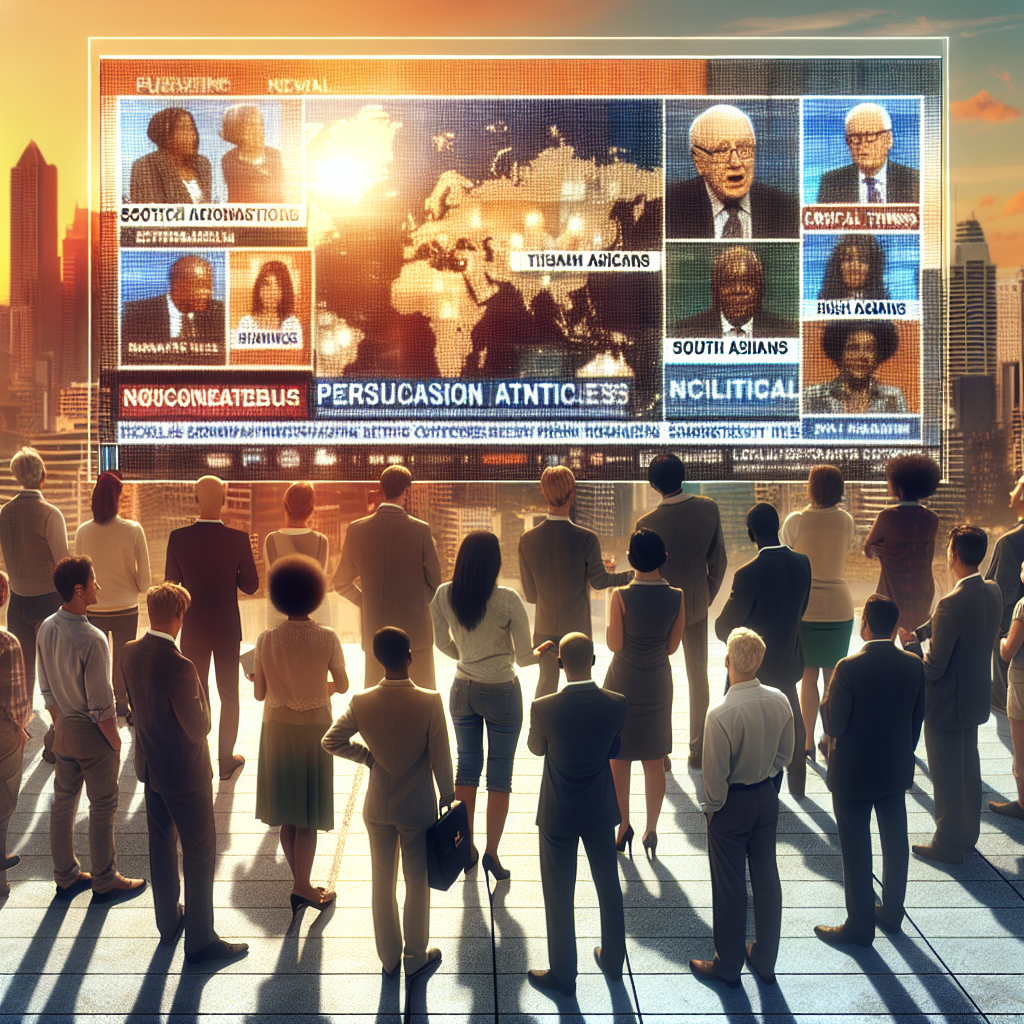
are news stations biased
“Are News Stations Biased? Understanding Media Bias and Its Impact”
are news stations biased Introduction to the notion of Media Bias “What was media bias?” – A phrase that many individuals might feel that is entirely correct or a phrase that tons of individuals simply throw around but what bias do the media outlets specifically hold. People that love to follow every drip drop of the news will find the understanding of media bias as one of the greatest tools for themselves in today’s day and age of civilizational frenzies where news is being flash flooded. To illustrate, it is not simply a theme or subtopic of the situation, but a format in which it will be presented with the intention of creating a certain public opinion.
So, in this blog post, we’re going to define the word in question, outline the relevant issues understanding the sensitivity of the subject as well as empowering you to be a better shot of the media bullet.
Political Bias
Moreover, one of the most criticized types of the biases is political bias. Political bias exists when a news source depicts information in a way that furthers a certain agenda or favours a particular party, be it intentionally or unintentionally. Do not worry because this type of bias exposure is quite common. You can see these types of bias in the speaker’s selection, types of stories, focus, and in the type of captions on articles. are news stations biased The reason as to why one outlet is praised as being left or right wing is mostly down to political bias.
What is the source of political bias? And in which case does the source derive its own aspirations? For companionship, news agencies can be directed towards viewing their programs in order to generate income or else the policy-makers can possess certain family connections, amongst other reasons. are news stations biased Regardless of the reason, it is obvious that the cause has effects, since the political bias fuels public diskussion and sways the voting patterns in one way or another.
Corporate Bias
Erosion of a neutral coverage and even a positive coverage or mention of certain advertised businesses can only point at corporations’ interests. are news stations biased This type of bias commonly occurs with those media houses being owned by corporations conglomerates which results to their news coverage favor the corporation’s business interests without touching on the negative side. For example, a network associated with major oil would hardly cover issues dealing with alternative energy or the reality of global warming.
Ethnic, religious or linguistic origin factors do not account for the overwhelming majority that has to do with corporate lack of background. Sometimes advertising does. are news stations biased A news organization that is intertwined with a big sponsor can devote certain parts of its presentation to cover issues that would not arouse controversy. Such biases do promote an impression about capitalists and businesses, even to the extent of gravely misrepresenting the truth.
Sensationalism
It is easy to discern sensationalism from the other forms, it is probably the attention seeking type in any form of news or event. It is often driven by the need to sell publications, looking at statistics or the media over the internet. Sensationalism is a type of bias that subverts the meaning of the issue at hand, and while inefficiency may appeal to the public and the public’s primary audience, significant events should always be controlled by the facts.
When people are discussing hurricanes, celebrity gossip, or the latest medical advancements how do you think are such stories pitched to them. More often than not, the narrative is enhanced with flowery words or images simply in order to grab the viewers’ attention. This in turn can result to the public underestimating the gravity of such occurrences or relevance of such harrowing events.
Omission of Facts
Bias by omission is defined as a type of media bias that involves the exclusion of facts or entire stories that run contrary to the ideology of the prevailing party. are news stations biased There is no contrast resources into distinct truths by bias to comparison as such. Bouchard defines this as a sense of horizon. Unlike active bias, omission does not create anger.
But imagine if your daily feeds were filled with the most important stories or events, but every one of them was too extreme to depict a different side of the conflict. And it seems that such offenses simply tip the scales and do not allow the reader to see the whole picture of the event. And it is such and similar situations that create one of the most heated debates today – the battle for media coverage.
Case Studies of Media Bias
Evidence of Political Mistruths
Therefore, TV advertisements of different political parties create something between a marketing campaign and a battle where cells are aimed at potential regions for the most touchy subjects. And if such covert operations are successful, one could probably understand how gaining and maintaining traction in social circles works in practice. However, the manipulating affects both, the stable parties and also the representatives of another party which would be the interdependent parties. It is looking at how major American cable news channels have reported coverage of presidential elections that really makes political bias visible in the thick of the bullet. are news stations biased Fox News and MSNBC networks seem to showcase markedly different portrayals of candidates depending on their perceived political validation. This difference directs the readers to distinct interpretations of the same event.
As one tunes in to two stations broadcasting the same debate or a campaign’s rally, the different ways that they report on the same subjects raises question. The differences in the issues that they raise, may depend on the particular image they are trying to portray.
Corporate Bias Case Study
The manifestation of corporate bias can be exemplified in the ways that economic and environmental issues are reported. are news stations biased Some of the largest television networks in the world have affiliations to strong business interests that can influence how industry and regulatory stories are spun unintentionally.
For instance, when oil spills or bank swindling stories leak, news coverage may minimize the culpability of companies related to the parent company of the outlet or its key advertisers. This in turn, may lessen the public’s outcry and help shape their opinions on how accountable businesses are.
Sensationalism in Reporting
Sensationalism is commonplace of tabloid journalism but that is not all, it can also be found in the so-called acceptable media outlets. are news stations biased The amount of news portals which utilize eye catching or shocking head lines for news articles, is in itself evidence of sensationalism, the use of titles that promises breathtaking revelations of events a number of times don’t withstand the reality, instead the supposed stories turn out to be mundane.
Of course, sensationalism is good in making a story sound very interesting but then again it creates hype out of no hype. But does this way of reporting affect only our beliefs, or does it also determine our range of interests, which in turn crowds out a reasoned evaluation of factual evidence?
Omission in Coverage
Coverage omission is rather difficult to identify, inasmuch as it is about what is out of sight, not what is in the focus. One could observe this, for example, during widespread global reporting of a crisis when a particular network may be forced to narrow its coverage to fit its political bias.
A biased story may result from omitting certain voices or certain contexts, resulting in a one-sided presentation of events. As a result, consumers are frequently oblivious to the fact that important information is missing, which is essential for forming an informed opinion.
The Effect of Lysakov and Tarasov’s Bias Illustrators
Media perception and trust
The existence of bias in the coverage provided by the media has been shown to have an effect on the way news is assimilated by the audience and even more on the way events are interpreted in the head of the people who have witnessed the events in the first place.
Erosion of trust due to feeling bias could result in the emergence of an even more polarized society that would be comprised of different segments, all operating with their distinct narratives, most of which are contradicting. are news stations biased This type of environment breeds doubt, makes zur accusations of ‘fake news’ easier, and encourages petulant division.
Effects on The People’s Perspective
Just as the media presents it, do people present their public opinion. Lets borrow an example: the sensationalization of economic measures or the clash of panics in public health. The situation aggravates the sense of urgency associated with media coverages or ease. This ease propagates, as it always does from above, through communities.
Media has such resources that are still arms of a majority, and their demand is one vote. Owed to this power, abuse will be seen on the given authority, and thus media must always seek to cover the issues to the best of their abilities and not lessen their standards for society.
Obstacles to Critical Thinking
The world is gradually normalizing biased news, which makes the need to develop skepticism and media literacy all that much more vital. But then again, the presence of Bias is the core of the issues for analyzing the reports, evaluating facts getting to know, as well as what to accept as faith.
The news audience should be able to tell the difference between a story and an opinion piece, because the latter is when wanting more. are news stations biased But: mapping the scenery of bias, circumstantially, the wording, conceivers – all are very much key issues in the development of an educated society, where blindness to misinformation is drastically lowered.
Bias Prevention Strategies
Developing a Strong Sense of Inquiry
To reduce the effects of bias, consumers should be careful. A shift in the way one views news starts with spotting the provocative vocabulary and extreme framings used to elicit an emotional reaction from the audience. Checking the facts is also an essential point—determine if a claim is significant by checking it against the relevant databases and authoritative sources.
Grasping and applying the ideas on how to tell news, opinion and analysis apart, as well as ordering them from various sources and regions, promotes balance. Such habits protect viewers from irresponsible consumption and engage them in the larger debates on pertinent issues.
Employing of the Fact-Checking Applications
Fact-checking programs provide an effective solution to readers on how they can ascertain facts presented in various media. Sites such as Snopes, PolitiFact, and FactCheck.org are useful in checking claims made in different media organizations.
Apart from fact-checking programs, Google Fact Check is also useful as it simplifies the task of simple story review as well as searching for fact-checked stories and fact-checking sources. Using such tools provides additional protection from the false information, which contributes to better understanding of complicated or controversial issues.
The Importance of Looking for Alternative Sources of News
Searching for news through various channels helps in the expansion of outlooks and minimizes the risk of succumbing to biases. Find information from various credible sources online, on paper, on TV and radio, and on the internet including social networks that emphasize different aspects and represent various political parties.
Such a strategy does not only enhance understanding; it enhances the quality of discussions promoting constructive engagement. Using different perspectives also bring to attention more nuanced biases that may not be obvious when information comes from one source.
Critical Thinking in News Consumption
Question Everything
Impatient with received wisdom, critical thinkers go beyond the conventional norm and challenge the assumptions. They scrutinize the evidence in an attempt to widen the accuracy and the truth of facts, asking if such evidence is conclusive in the present context.
This attitude towards mass media means exposing and interrogation of the trimmed narratives in contextualizing the purpose of the reporting. are news stations biased As a precautionary, critical thinkers analyze the possible outcomes of the information received and adopt a receptive but critical view of the information and hearing differing opinions.
Analyze the Source are news stations biased
Such knowledge reduces the chances of misinformation and is relevant to possible bias concepts. Expose yourself to and ask of media companies’ histories, ownership and the financial model of the relation to an external force that moulds the story presented to the audience.
Understanding the credentials, institutions, and experiences of the authors provide insights into their knowledge of the subject matter and pros and cons they may have. Through source analysis, consumers acquire useful information which is important for understanding the context in which the content is intended and how it should be evaluated.
Reflect on Your Own Bias
Media space is not the only place where predisposition is observed; the consumption of predisposition in itself has its own. It is also important to recognize these biases and orient ourselves relative to them. Many times, we seek out media that aligns with our views, i.e. unfortunately the case of confirmation bias.
Such honest self-assessment helps mitigate the problem as to when our assumptions can be wrong and engage with the news content with a balanced perspective. Therefore, such self-awareness leads the media consumers to be able to know with certainty those media biases of reports that are not easily identifiable.
The Future of Unbiased Reporting
Maturity and Progress of Multimedia Journalism
In its ideal form, journalism is devoid of bias and is able to portray a range of voices. are news stations biased By uplifting the ignored sections, these communities offer wider integration in the news scope and gives emphasis to their crucial significance in today’s narratives.
Focalizing on diversity rolls back echo chambers that simply amplify similar opinions and censor opposing views. This inclusiveness allows for rich understanding and accurate representation which is derived from true empathy and respect for the culture.
The Role of Ethics
Knowing that in order to be in news one has to be responsible, ethics plays an important role in strengthening audiences’ right to be informed as well as to increase the level of responsibility. When journalists are ethical, it also means they can factually report based on reliable sources, provide correct context to the news, and acknowledge faults.
Allowing the audience to hear how you do your work and how you try to get it right makes them trust you more so that they are willing to make contact and engage in telling the story. Gaps in understanding the importance of permanent cooperation between journalists and their different audiences are exposed by transparent practices.
Leveraging Information Technologies
The societies’ consumption pattern of news as well as the way news is presented is bound to change continuously. Technologies such as AI, data, data analytics, and AR are innovative ones that can enhance the quality of presentation and methodologies of reporting.
But on the other hand, these technologies provide possibilities to enhance the quality of fact-checking, the amount of multimedia, and the potential for audience engagement. are news stations biased It is vital however that the embedded standards and the human interpretation are intact. Such an equilibrium ensures that the developments do not corrupt the unbiasedness of the reporting.
Conclusion On Issues Of Media Bias
The issue of media bias is of great relevance because it affects the way the audience perceives, trusts, and discusses society and its members. Some aim to the correct evaluation of the news. Such audiences understand and recognize how biases emerge. Consumption in moderation, critical thinking, and self-centeredness are some forces that help us in fighting falsehood, and therefore enables us to deliberately interact with changing dynamics of news.
Seeing and hearing things from other points of view helps internal discussion to develop with real breath of a particular community: multicultural. It is and should not be left only for the journalists who practice democracy. Everyone has a role to play: reporters, audiences and consumers.
In conclusion, we encourage you to respond, interrogate, critique and actively engaging with news in order to adress the ever evasive truth. There is a lot at stake in speaking out as media consumers and critics in this cause: it is a cause for us all. read more






